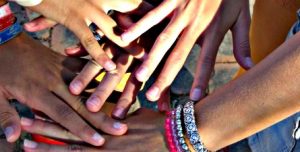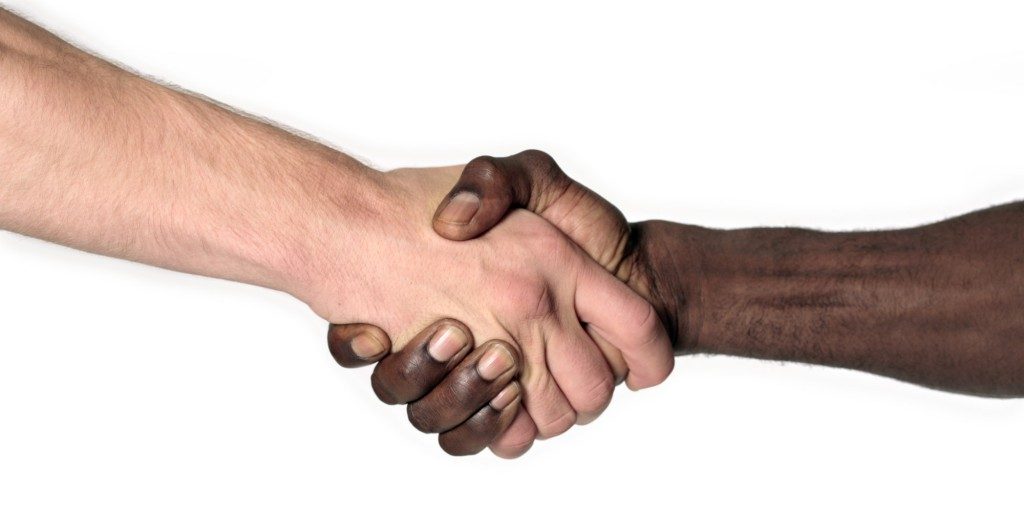The late Mother Teresa once said: “Not all of us can do great things. But we can do small things with great love.” She was known as the saint who devoted her life to helping people in need tirelessly, and became a symbol of peace and charity across the world.
Since 2012, the United Nation General Assembly declared every September 5th the International Day of Charity, to honour and celebrate charitable people like her, in the same time promote charity. The date was especially selected to commemorate the anniversary of her death.
Here in Malaysia, we witness many charitable events throughout the year – from charity walks, runs, marathons, community work, fundraising, animal welfare, forums, and exhibitions, among others. But are Malaysians really that charitable? – You’d better believe it, we are indeed.

To prove this fact, our country completed the top ten of the World Giving Index (WGI) 2015, out of more than 140 countries in the world. Each countries’ scores are based on volunteering, helping strangers and donating money. The research carried out by data platform Gallup and Charities Aid Foundation showed our country scoring well for helping strangers (27th globally) and donating funds (17th).
While our country is noted as ‘most improved’ in giving, we have fallen three spots from seventh place in the ranking, as the proportion of giving time to volunteer has declined from 41% to 37%. It seems that not many are willing to give up their Saturday to volunteer or perform unpaid labour, and the report revealed those aged between 30 and 49 remain the most likely to give their time.
There however has been a recovery in young people’s generosity, helping to reduce the generation gap which sees much more giving among older people.
Following these remarkable results, we asked a few stakeholders how they feel about Malaysians’ responsiveness towards charitable acts, plus, moving forward on how the nation can improve its generosity, encourage and increase awareness in charity participation, to ultimately retain our spot in the top ranking of the most charitable countries in the world.
President and founder of Insaf Malaysia Technical Relief, Ishak Abdul Kadir has experienced firsthand organising and dealing with charitable events. Since 2014, the NGO has completed building many houses in villages for its ‘Tampal Rumah’ programme.
While Insaf aims to create awareness to respect, help and care for others, regardless of their race, religion or political allegiance, Ishak shares with us Malaysians do have their reservations and preferences when ithttp://abovewhispers.com/wp-admin/post-new.php comes to being charitable.
“When it comes to being charitable, ethnicity, religion, culture and even location does play a role for Malaysians in deciding to be involved in an event or not.
“Some charitable events don’t get enough support because most people have the tendency to think that doing charitable works is only for wealthy people,” he observed.
However, Ishak stressed such perceptions as these should be dispelled.
“Everyone can donate, even RM1 would do. It may seem like a small amount, but every single cent can make a difference,” he says.
Meanwhile, Nurul Alimah, who is no stranger to organising free market events, like the one in Puchong recently, that allows the public to donate anything they want, and take anything for free, told Malaysian Digest that Malaysians would usually participate in charitable events upon following others.

“It’s usually about their circle of friends, not so much ethnicity, religion and other factors.
Meanwhile, Nurul Alimah, who is no stranger to organising free market events, like the one in Puchong recently, that allows the public to donate anything they want, and take anything for free, told Malaysian Digest that Malaysians would usually participate in charitable events upon following others.
“It’s usually about their circle of friends, not so much ethnicity, religion and other factors.
“Once, I went to a charity event in Jaya One that was organised by a Chinese individual. While majority who came to support were Chinese, but because it was open to the public, many people (of other ethnicities) also participated and gave their support as well,” she relayed.
In addition, when it comes to getting the public’s support, she says it all depends on the scale of the event and the workload.
“From my observation, we would get more support from the public when the events are easier to organise, and does not require much involvement, or full commitment from participants.
“But when there’s a lot more energy and work involved, like volunteering, it can be difficult as not many are willing to give up their commitment whether it’s time or family,” Nurul Alimah highlighted.
While many schools, organisations, companies and individuals have good intentions in being charitable and hosting a charity event, nevertheless these days, it seems like an ‘in’ thing to do, that Ishak fears it may have lost its sincerity and true purpose.
“In general, the purpose of doing charities are to help and collect funds. However, lately, some organisations have made it become very trendy that the actual staging of the event can overshadow the objective.
“Furthermore, some companies only take part in charity events for the sake of their corporate social responsibility (CSR) and of course because they want ‘mileage’ for their efforts.
“They know the money spent on charity works is tax deductible, that’s why most big corporations have CSR,” said Ishak.
Echoing the same views, Nurul Alimah expressed while some people involved in charitable works are sincerely giving, there are individuals who take part for the glamour, to follow the trend, or for personal gain.
“I must admit that there are individuals who do charitable works for other reasons aside wanting to give. They do it for the sake of popularity, or because it has become a trend nowadays,” she explained.
“Personally for me, when I organise events, I would try to not involve any media because I’m not doing it for fame, but there are some committee members who had asked me to invite them.
“There are pros and cons in inviting the media. Of course more publicity would mean more people will support your event,” she said.
She then added, “Normally, big charity events like runs or marathons would get a huge support from the public, as opposed to events like cleaning rivers, which usually is very hard to get people to participate.”
As for the free market that she organises, Nur Alimah doesn’t deny that while it is a charitable effort, some people would swipe things they don’t necessarily need because it is free, but she wishes to take the positive side of things.
“Within our community when we do free market events, we remind each other to instil ‘husnuzon’ or positive thought, especially among the contributors, to not make ill perceptions on the people who come to our events.
“I am not saying that there are no bad deeds in this world, but it would be right to have positive thoughts about other people who go to free market events,” she shared.
Youths Must Be Nurtured To Do Charity Works
 It’s true that charity starts from home, but it also starts in school. Both interviewees agree in order to get more millennials interested and be involved in charity works, we need a strong foundation to nurture them.
It’s true that charity starts from home, but it also starts in school. Both interviewees agree in order to get more millennials interested and be involved in charity works, we need a strong foundation to nurture them.
“We need to start within the family, and educating our children in schools. Only then can we look at the bigger picture – doing charity within the community.
“What we need is to bring back the spirit of ‘gotong royong’ – spirit of volunteerism as practised by our elders.
“It is good for our young ones to grow up with a sense of wanting to ‘do good’,” he advised.
Nurul Alimah meanwhile believes charity is important within a community.
“It’s good to start within your own community first, which is what we have been promoting with the free markets.
“There are also others who go beyond that and do charity works outside of their community. Nevertheless, it would be best to take care of your own community first,” she declared, adding that family and friends also play a big role in nurturing a sense of giving.
In her parting words to us, Nurul Alimah left with this advice: “If you want to do charity, just do it.”
“Although in the beginning you would not get much support from the public, but if you are consistent and passionate about your work, people would recognise your efforts and will eventually give their full support,” she concluded.

